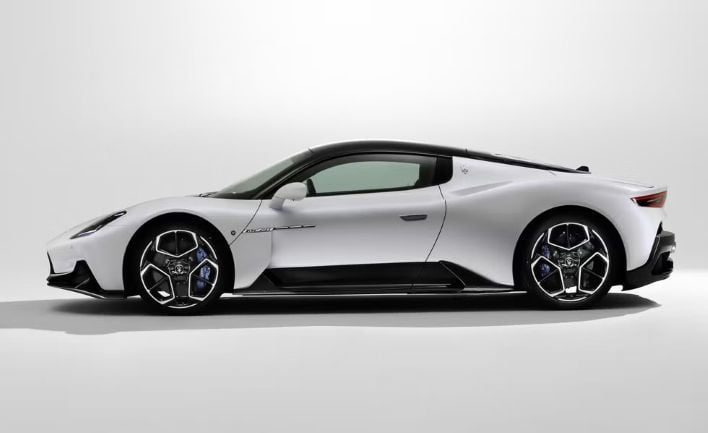Ferrari Pumps Brakes On Next EV As Demand Stalls, A Blow For Electric Supercars?
Ferrari's postponement is part of a growing sentiment within the ultra-luxury segment: the allure of a silent, battery-powered supercar is struggling to resonate with traditional buyers who covet the visceral experience, distinctive sounds, and raw power of a internal combustion engines.
While Ferrari is moving forward with its first EV, set for a staged unveiling beginning this October with customer deliveries expected in October 2026, the Ferrari Elettrica is characterized as a low-volume showcase car. Priced north of $500,000 and co-designed by former Apple design chief Sir Jony Ive, it is intended to signal Maranello's commitment to electrification rather than revolutionize its sales figures.
The second yet-unnamed EV, in contrast, was envisioned as the higher-volume model, with plans for 5,000 to 6,000 units over a five-year lifespan. However, market realities have forced a recalibration. A source insisted that sustainable demand for EV sports cars is non-existent, thus any ambitious production targets would be completely frivolous.

This postponement is not unique to the Prancing Horse, though. Lamborghini has reportedly delayed its first EV until 2029. Maserati, part of the Stellantis group, has even gone as far as canceling its electric MC20 Folgore supercar due to a perceived lack of commercial interest. Porsche has also scaled back its EV production targets for models like the Taycan and electric Macan SUV amid softer sales.
Aside from consumer interest, luxury high-performance EV manufacturers also face technical hurdles such as heavy battery packs and the challenge of delivering sustained power comparable to internal combustion engines. In a way, this delay might give Ferrari additional time to figure these obstacles out.
For now, it appears the industry is recognizing that in the world of high-performance luxury, the electric revolution might proceed at a more measured pace, driven by genuine consumer desire rather than solely by technological one-upmanship or regulatory pressure.

